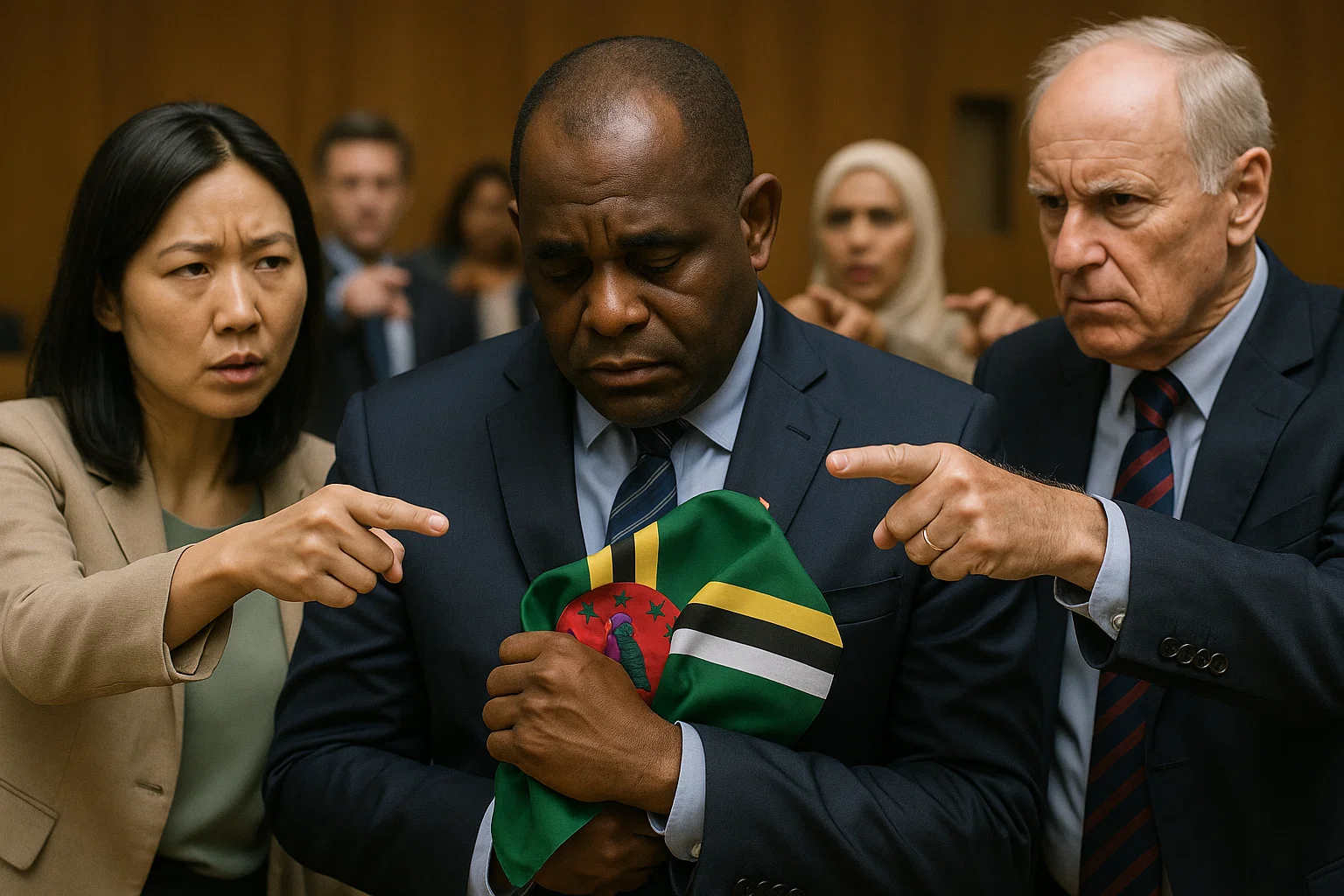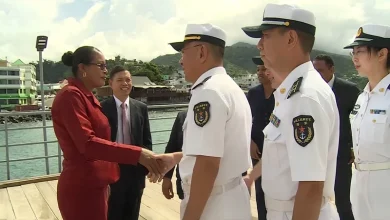
Dominica chose not to participate in last Friday’s United Nations vote on the so-called New York Declaration, a text that backs concrete steps toward a two-state solution and explicitly condemns both Hamas’s October 7 attacks and Israel’s conduct in Gaza. The declaration sailed through the General Assembly: 142 in favour, 10 against, 12 abstentions. Our name was not on the board. For a country that has often stood with Palestinians in high-profile UN votes, sitting this one out looks timid at best and unrecognizable at worst.
It stings because the record shows Dominica has been part of big moments for Palestinian recognition. In 2012, when the General Assembly voted to grant Palestine non-member observer state status, Dominica voted yes. Advocacy trackers that tally Middle East votes also list Dominica as regularly opposing Israel at the UN over the past decade, aligning with pro-Palestinian positions most of the time. Against that backdrop, a no-show on a two-state declaration is not a neutral act. It reads as a cowardly retreat.
Why would Dominica sit out a vote like this
Start with energy. Dominica’s flagship geothermal development project is being built and operated under a 25-year agreement with Ormat Technologies, having deep Israeli roots and major operations in Israel: it was founded in Israel, is also listed on the Tel Aviv Stock Exchange, and its main manufacturing arm (Ormat Systems Ltd.) is based in Yavne, Israel. Ormat is financing the construction, as well as operating and maintaining, the 10-megawatt power plant under a long-term power purchase agreement with DOMLEC, with the handover of assets scheduled to occur after the concession period has expired. The project has become the centrepiece of our promised energy transition, with multilateral lenders now locked in. When your marquee infrastructure depends on a single private partner from a country at the centre of the question on the UN floor, every vote is suddenly freighted with commercial risk.
Add the optics of aid. After Hurricane Maria, IsraAID arrived, partnered with UNICEF and local groups, and ran psychosocial support and WASH programs. In small states, humanitarian organisations often outlast their budgets. Even modest grants and trainings can create the feeling of a relationship to be managed with care. None of that should decide foreign policy, but it contributes to a climate in which officials ask themselves whether a sharp stance will imperil helpful ties, however “token” some of that assistance may look in hindsight.
Then there is the classic small-state instinct to hedge. When the United States and Israel voted against the text and major European partners split, many microstates calculated that a low profile would carry the least risk. But hedging only works when the issue is peripheral. This one is not. The declaration condemned Hamas by name and called for an end to the Gaza war under international supervision, which is exactly the space where a two-state solution still has oxygen. Choosing silence here tells allies and adversaries alike that Dominica was not prepared to put its voice where its past votes have been.
Why is this abstention embarrassing
Embarrassment comes from contrast. In 2012, Dominica helped carry Palestine into the chamber as a recognised observer state. In 2024, the Assembly upgraded Palestine’s UN privileges and urged the Security Council to reconsider full membership; the Caribbean’s moral voice mattered again. On September 12, 2025, when the world’s majority reaffirmed the two-state path and attached unprecedented UN language condemning Hamas, Dominica stepped aside. That is a visible arc, and people notice arcs.
It is also embarrassing because our foreign policy brand has leaned on solidarity. We lecture bigger powers about international law after hurricanes and climate change talks. We ask them to stand with us because principles should not be for sale. Abstaining from a declaration that both condemns terrorism and calls time on collective punishment in Gaza makes our principles look negotiable. The message received is simple. When moral clarity risks upsetting an investor, a donor logo, or a diplomatic friend of a friend, Dominica will step off the floor.
And yes, there is timing. The same month lenders and regional funds announced financial close and new tranches for the geothermal build, the General Assembly put the clearest two-state text in years to a vote. Pull those headlines together and you get the worst possible read: that our silence is tied to Israeli commercial and NGO footprints on the island. Even if the government denies any linkage, politics is not only what you do, it is when you do it.
The risks of letting contracts set our conscience
No one is saying tear up a PPA or send aid workers home. The point is sovereignty. If Dominica cannot vote its stated values because a foreign supplier runs a power plant for 25 years, that is not energy security. It is the opposite. If humanitarian partners become political liabilities the moment a tough vote appears, then the relationship was never as honest as we pretended.
There is also a reputational cost that outlives a single roll call. Britain, Canada, France and others signalled they would move toward recognising a Palestinian state around this UN week. The General Assembly’s vote count was not close. By sitting out, Dominica placed itself in a thin crowd and gained nothing concrete in return. Investors prefer predictability, but they also read newspapers. They know the difference between policy prudence and value drift.
Finally, there is the simple memory of people. Diaspora and neighbours remember who spoke up when it mattered. In 2012, we spoke. In 2024, we were counted in the global push to upgrade Palestine’s standing. This month, when a carefully balanced text called for an end to the war, a stabilisation mission, hostages released, and a return to a political track, we sat out. What goes around will come around. One day, Dominica will again ask the world to back a principle important to us. If our partners keep a ledger, this abstention will be on it.
A better way to square interests and values
Small island developing states like Dominica can protect critical projects and still vote its conscience. That requires three things. First, contractual clarity that insulates public positions from commercial retaliation, backed by diversified suppliers so no single partner has a veto over our voice. Second, a public explanation after sensitive votes, so citizens and partners understand that Dominica’s choices flow from policy, not pressure. Third, a return to the consistency that once had us on record when Palestine’s status moved forward at the UN.
Dominica is not the first state to balance energy deals, aid relationships, and tough votes. But this moment was too clear to duck. The declaration condemned Hamas, demanded an end to the Gaza war, and revived the only political path that can stop the bloodletting. We should have voted yes. The country that stood up in 2012 and has so often voted with Palestine could have done the same on September 12. Turning away, for whatever blend of reasons, was a mistake that makes us look smaller than we are.
This article is copyright © 2025 DOM767








